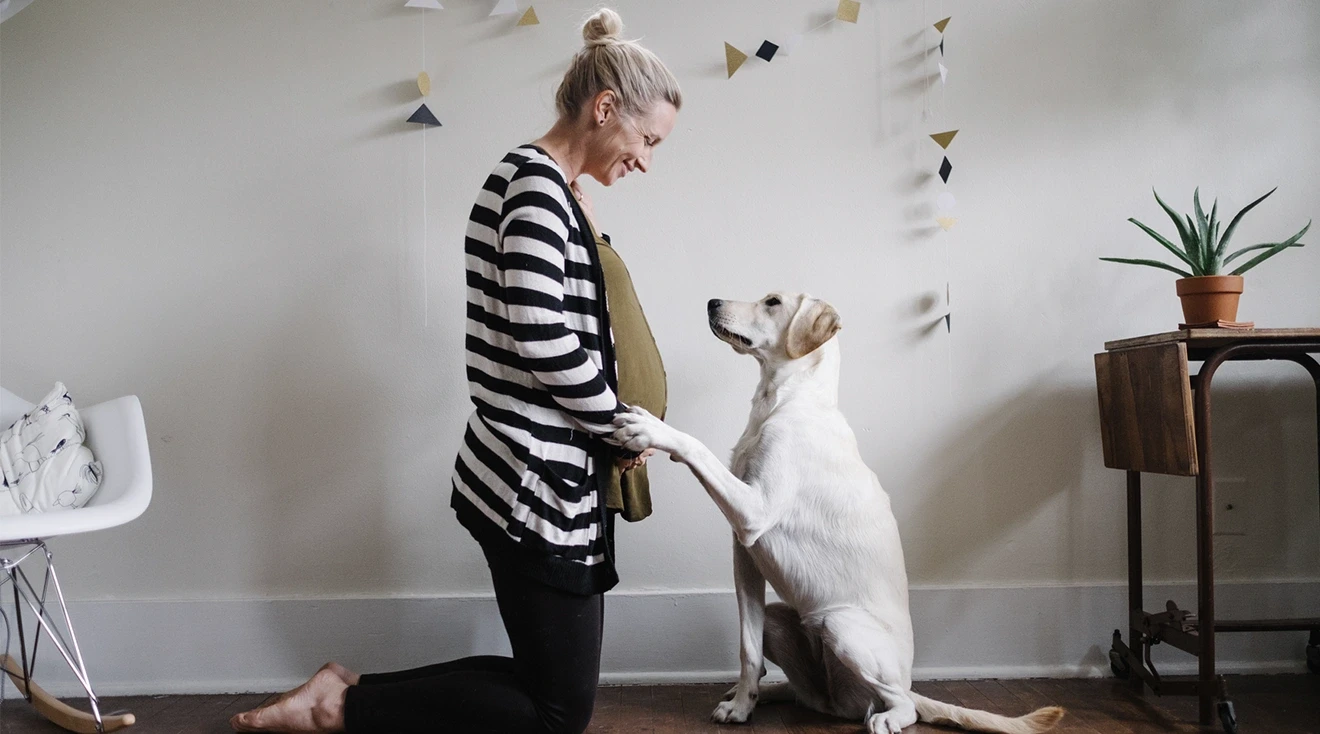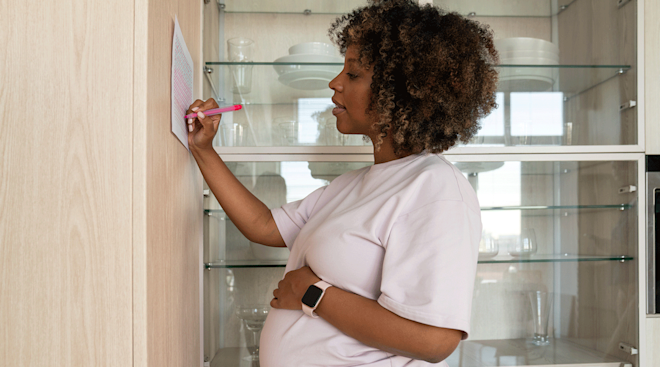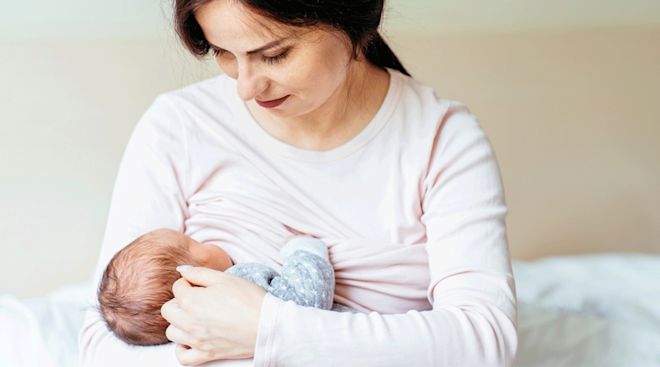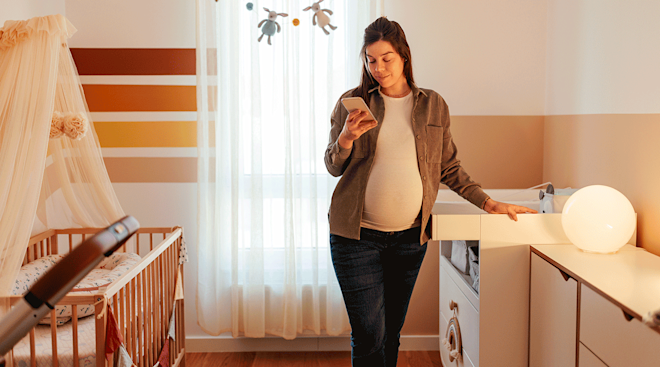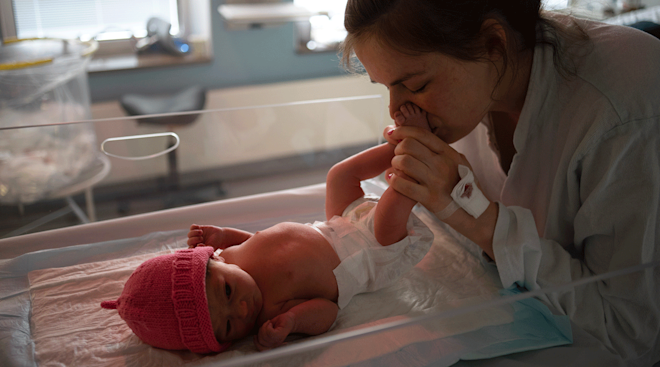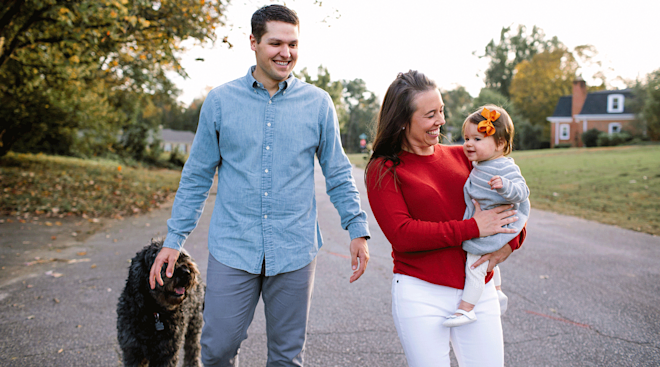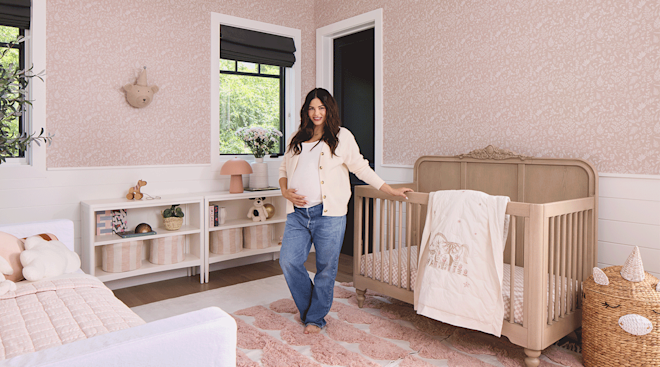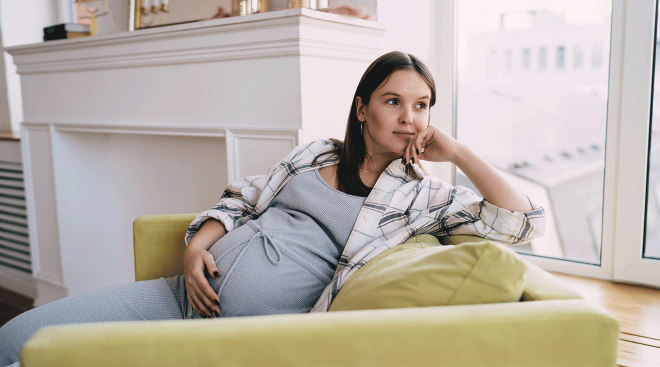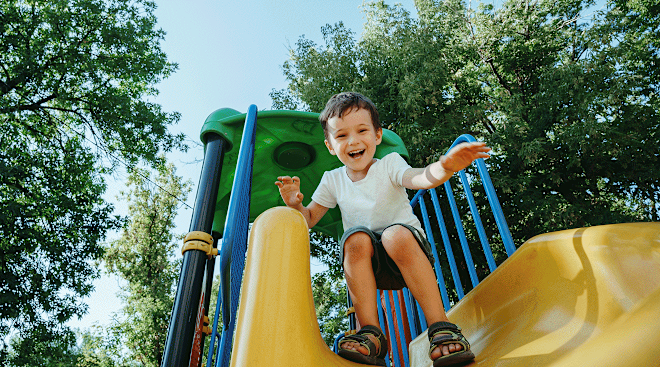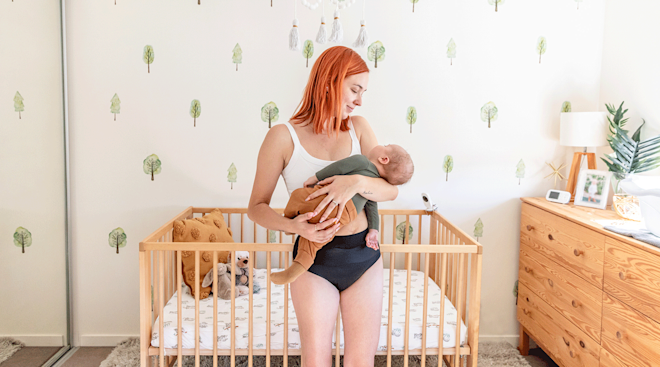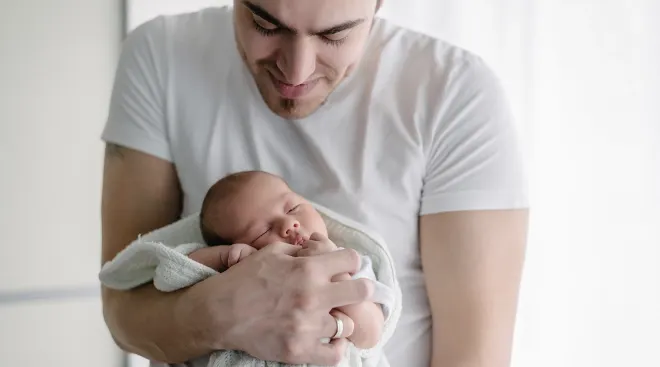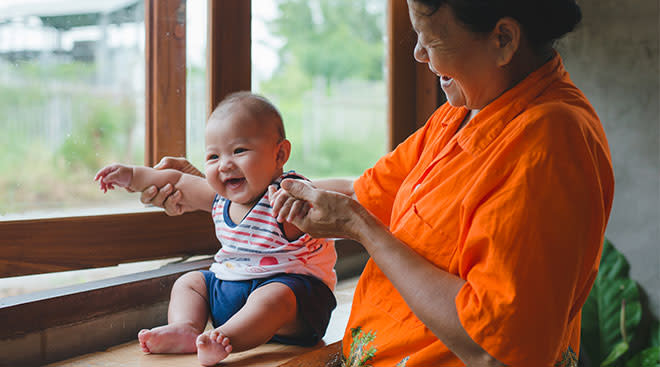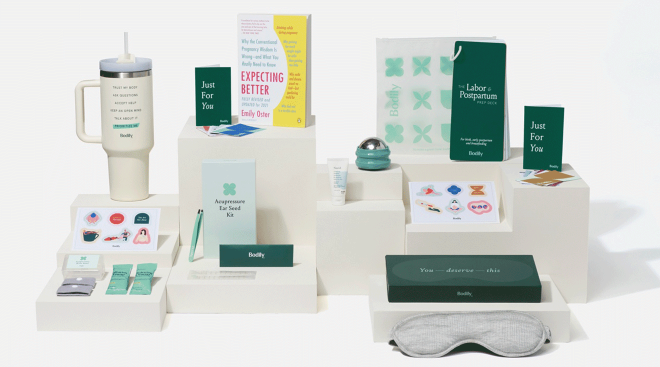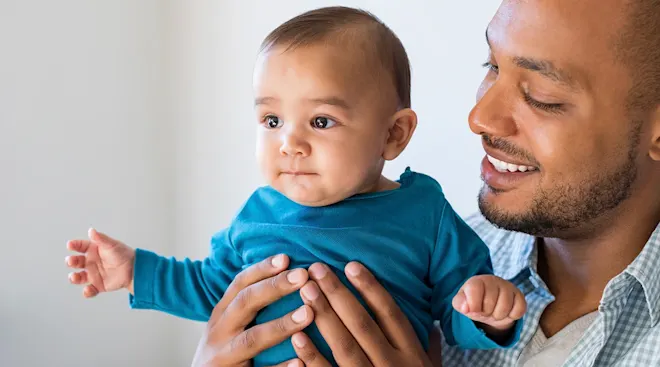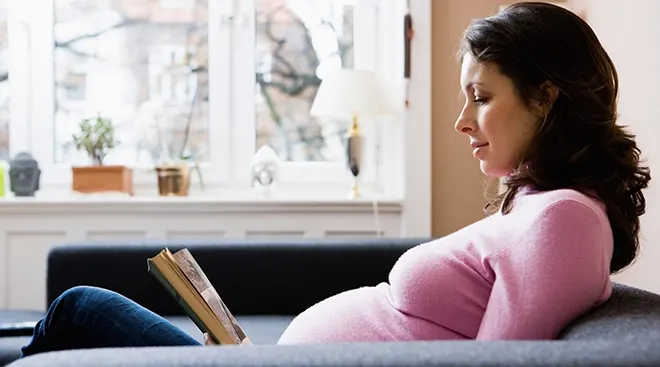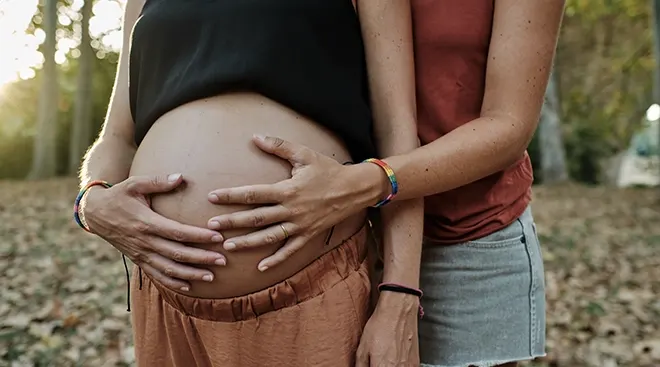Can Dogs Sense Pregnancy?
If you’ve lived with a dog, you’ve likely wondered how they just know the things they know—for creatures who can’t speak our language or tell time, they seem to have a supernatural ability to predict when the mail carrier is coming, when you’re sad or under the weather or when their human siblings are about to get off the school bus.
Many dogs also seem to sense when their owner is expecting: They become instantly clingy or protective before their dog mom even gets a positive pregnancy test, leaving us humans to wonder how, exactly, they’ve figured it out. So, can dogs sense pregnancy? Here’s what you need to know—and how to prepare your furry friend for the big changes ahead.
You may have heard stories of dogs doting on their pregnant owners by increasing their protective behaviors, like stalking them to the bathroom and sleeping between their legs. But there are scientific reasons behind these adorable stories.
“Dogs have an extremely sensitive and strong sense of smell,” says Rachel Barrack, DVM, a certified veterinary acupuncturist and owner of Animal Acupuncture in New York City. “A large part of their brain is used to detect scent, [so] they’re able to sniff out bombs, drugs, cancer, insulin and even hormonal changes.”
According to Monte Swarup, MD, FACOG, an ob-gyn in Chandler, Arizona, and the founder of HPV Hub, hormones start changing early in pregnancy—soon after your missed period, when you’re only about four weeks pregnant. So if your friend swears her dog knew she was pregnant before she did, she might not be exaggerating!
But what, exactly, is your dog sniffing out in early pregnancy? It could be human chorionic gonadotropin hormone (HCG), which rises at conception and increases quickly throughout the first trimester, explains Alyssa Dweck, MS, MD, FACOG, an ob-gyn in Westchester, New York, and medical advisor for Intimina. This hormone is made by the placenta and reflected in both blood- and urine-based pregnancy tests.
It could also be rising levels of progesterone, which Dweck says shoots up quickly after conception to support your pregnancy by stimulating thickening of the uterine lining for implantation and preventing menstruation.
Although dogs do have super-attuned noses, there’s actually not much definitive evidence that they can smell hormones. Still, it’s a reasonable assumption: Canine olfactory senses are strong enough to smell disease-related changes in human blood and urine, and many male dogs are able to detect reproductive changes, like ovulation, in female dogs.
Smell isn’t the only sense your superhero of a dog is using: “Dogs have an extremely acute sense of hearing, so it’s possible that they can hear a fetal heartbeat as early as the 28th week of pregnancy,” says Barrack. She adds that dogs might also hear an expectant mother’s gastrointestinal noises—now that’s an odd symphony of sounds.
Finally, don’t forget about emotional changes. Because dogs are so in tune with their owners, they’ll definitely pick up on their human’s mood changes, says Barrack. Your increased excitement (and, let’s be honest, your added stress and anxiety) may alert your dog to the fact that something’s up.
Just remember, notes Barrack, that while dogs are extremely perceptive, it’s unlikely they’ll understand why things have changed (i.e., that there’s a new human growing inside you). They’ll find out soon enough!
Anytime a dog is experiencing a change to their status quo, their behavior could also change.
“Many people report that their dogs are more affectionate and/or protective during their pregnancies,” says Barrack. “Presumably, these behavioral changes are due to changes in a pregnant owner’s mood coupled with hormonal and scent changes.”
When Madeline Sertner, who lives outside of Dallas, became pregnant for the first time in February 2023, her dog, Ivy, started following her around the house. While Sertner was cooking, getting ready for work, resting on the sofa, sleeping and even showering, Ivy was right there beside her.
“It was aggravating and bizarre and cute as heck, now that I know why she was doing it,” laughs Sertner, who says Ivy’s strange behavior allowed her to believe she might actually be pregnant after being told she couldn’t have kids. Just a few weeks later, she found out she was expecting.
It’s a possibility that your dog can sense approaching labor, but it’s not scientifically proven.
As far as what your dog might smell, Dweck says there are multiple hormones and chemicals released during the onset of labor: prostaglandins, which affect cervical dilation; oxytocin, which initiates contractions; relaxin, which promotes the relaxation of pelvic ligaments in preparation for delivery; endorphins, aka feel-good chemicals that provide natural pain relief; adrenaline, the “fight or flight” hormone, and prolactin, which peaks when labor starts and is vital to lactation.
Even if your dog doesn’t smell any of the physical changes that occur as labor ramps up, they may pick up on your heightened emotional state—you might be a little more anxious, after all.
Research suggests that dogs not only sense when we’re stressed because of our body language, but that they can actually smell our stress through our breath and sweat—so, yes, your dog is likely to know something’s up as labor approaches.
Whether your dog sensed your pregnancy early on or not, a new member of the family is coming, and you’ll need to help your dog prepare for this major change. Your attention is likely to become more divided, with less time for playing and walks with your furry one—and less space on the couch for doggy snuggles.
“Little babies bring about big changes to a household, so it’s important to prepare your dog before the birth,” says Barrack. Introducing small changes gradually can help your dog adjust without getting stressed out. Here are some tips for a smoother transition.
- Reinforce basic commands. You may need your dog to give you and baby space quickly, so this is a great time to make sure your dog is obedient to simple directions like “sit,” “lie down,” and “go to bed,” notes the American Society for the Prevention of Cruelty to Animals (ASPCA). If there are other commands or manners you want your dog to know by the time baby comes, you can teach those as well.
- Make changes to routine during pregnancy. If you know you’ll need to adjust the time of day you walk or feed your dog once baby comes, the ASPCA suggests making those changes during pregnancy so you can take your time (and your dog won’t associate those changes with your newborn). Dogs rely heavily on consistency and routine to feel comfortable and secure, according to the American Kennel Club (AKC).
- Decide what will be off-limits. If you won’t want your dog on your bed anymore once baby comes, begin training them now that the bed is off-limits. Same goes for whatever space will be just for baby, such as the nursery. The AKC suggests making sure your dog also has a place that’s just for them, whether it’s a crate or a dog bed in a quiet part of the house—they should have a spot to hide away when they’re feeling overwhelmed, and it should be off-limits to baby items (and, eventually, your crawling or toddling little one).
- Introduce sensory experiences. Some experts recommend playing crying-baby noises during your pregnancy, so they aren’t as alarming to your dog once baby is born. Likewise, the ASPCA suggests allowing your dog to experience some of the sights and smells that come with a newborn, like infant lotion, a high chair or baby swing, stuffed toys, diapers and wipes and a crib or bassinet.
- Emphasize a slow introduction to baby. Barrack recommends having someone bring an unwashed baby blanket home from the hospital so your dog can get used to the scent before baby comes home. Then, when it’s time to come home as a family, give each parent a chance to go inside and greet your dog like normal, without baby there, before all coming in together, suggests the ASPCA.
- Include your dog in your new routines. Once baby is home, Barrack says to make sure to include your dog in baby routines so they don’t feel excluded from the family unit. If you’re comfortable, allow your dog to sit near you on the floor while you feed baby, or hang out in the bathroom while you give baby their first bath.
So, does your dog actually know you’re pregnant? Yes and no. Most likely, your very smart furry friend knows things are different. But they quite likely don’t understand why these things have changed. They just know life is changing. Try to be extra patient with your dog’s unusual behaviors—eventually, they’ll get used to having a little person around. And that little person will hopefully soon turn into a playmate!
Please note: The Bump and the materials and information it contains are not intended to, and do not constitute, medical or other health advice or diagnosis and should not be used as such. You should always consult with a qualified physician or health professional about your specific circumstances.
Plus, more from The Bump:
Rachel Barrack, DVM, CVA, CVCH, is a certified veterinary acupuncturist, certified veterinary Chinese herbalist and owner of Animal Acupuncture in New York City. She earned her degree in veterinary medicine from the Ross University School of Veterinary Medicine.
Alyssa Dweck, MS, MD, FACOG, is an ob-gyn in Westchester County, New York, and a sexual health and reproductive expert for Intimina, a brand of products focused on women's intimate health. She earned her medical degree from Hahnemann University School of Medicine in Philadelphia, now named Drexel University.
Monte Swarup, MD, FACOG, is an ob-gyn in Chandler, Arizona, and the founder of HPV Hub. He earned his medical degree from the University of Pittsburgh School of Medicine.
Animals, Canine Olfaction: Physiology, Behavior, and Possibilities for Practical Applications, August 2021
StatPearls, Physiology, Prolactin, July 2022
Plos One, Dogs Can Discriminate Between Human Baseline and Psychological Stress Condition Odours, September 2022
American Society for the Prevention of Cruelty to Animals, Dogs and Babies
American Kennel Club, Why Your Dog Needs A Routine At Every Stage of Life, May 2023
American Kennel Club, Introducing Your Dog to Your New Baby, October 2020
Learn how we ensure the accuracy of our content through our editorial and medical review process.
Navigate forward to interact with the calendar and select a date. Press the question mark key to get the keyboard shortcuts for changing dates.

































